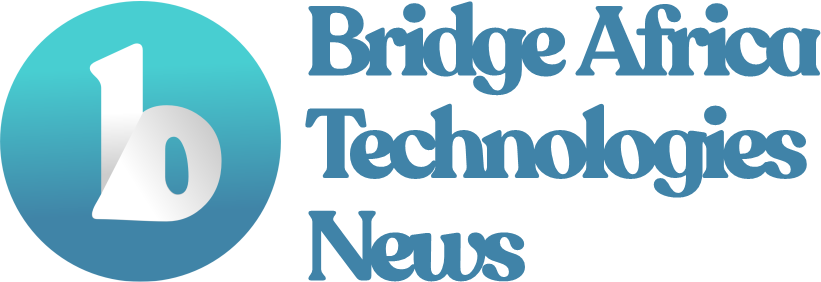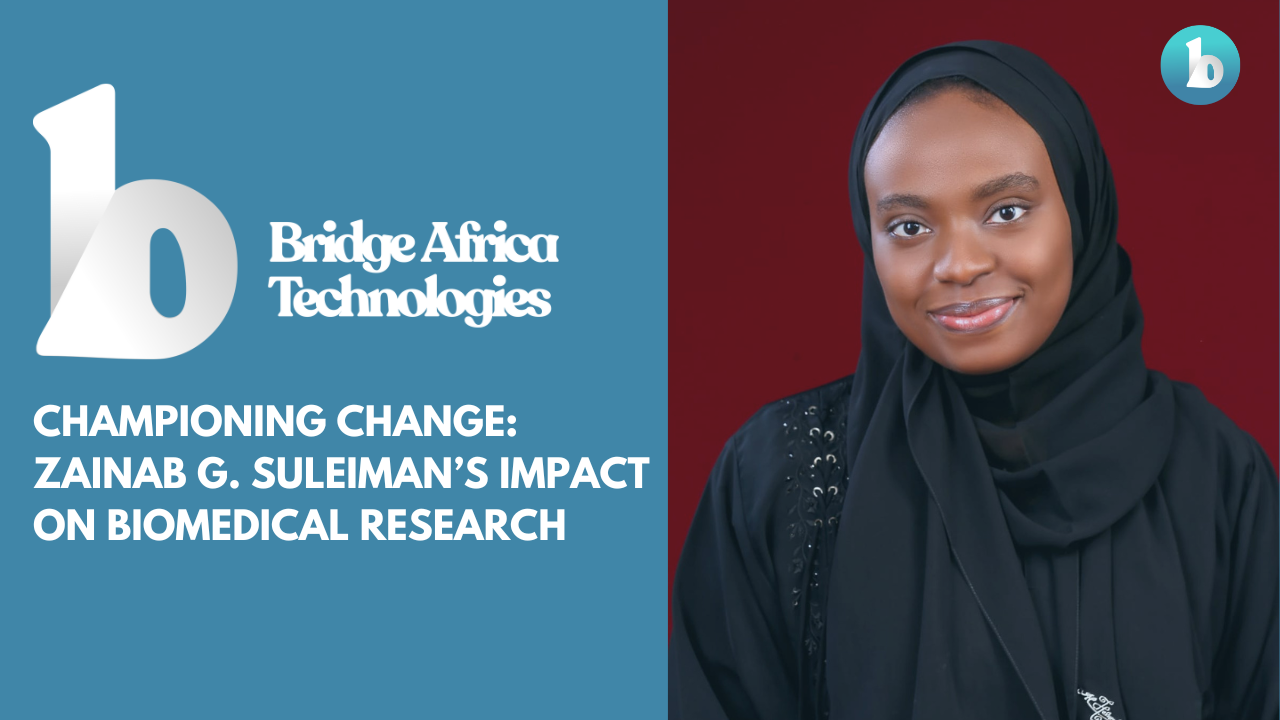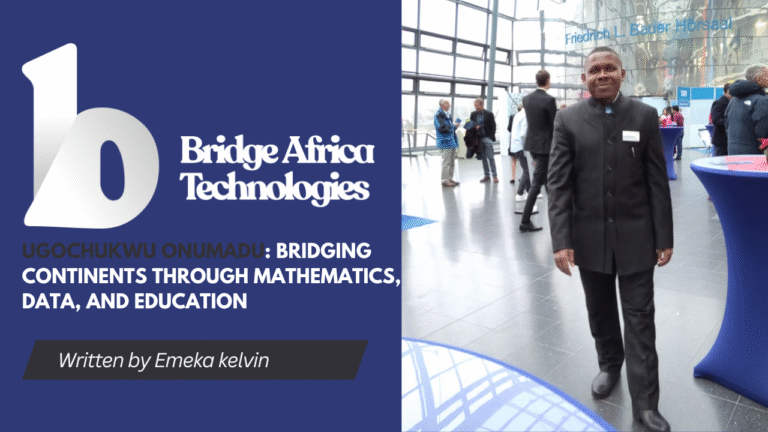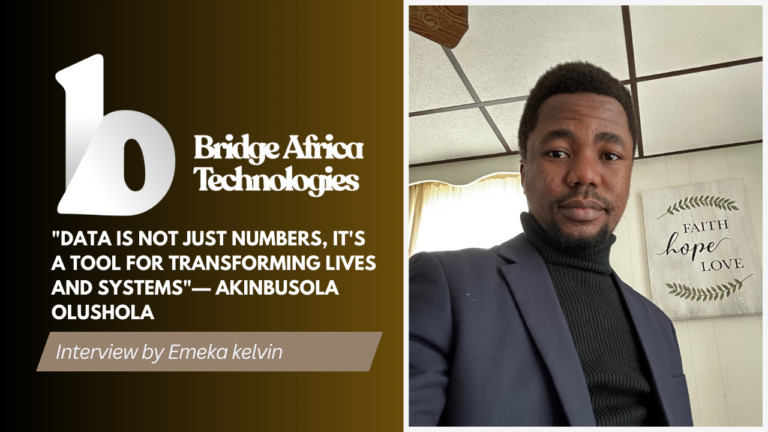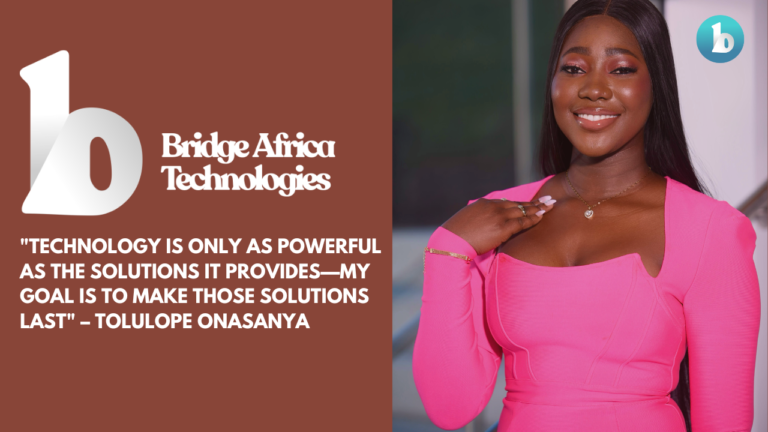Meet Zainab G. Suleiman; an experienced and accomplished biomedical engineer whose multidisciplinary expertise and dedication to innovation have made significant impacts in biomedical research and medical device design. With a solid foundation in both biomedical engineering and biology, Zainab has consistently demonstrated her ability to work effectively in cross-functional teams and fast-paced environments, excelling in problem-solving and innovation.
Zainab’s academic journey began at the University of Alabama at Birmingham (UAB), where she earned both her Bachelor’s and Master of Science degrees in Biomedical Engineering, as well as a Bachelor of Science in Biology. During her time at UAB, she honed her skills in regenerative medicine, life sciences, and various engineering disciplines. Her research focused on critical areas such as cardiac fibrosis, Parkinson’s disease, and breast cancer, leading to several publications in prestigious scientific journals.
Professionally, Zainab has a diverse portfolio. She served as a Research Engineer at BioHorizons Implant Systems, where she coordinated research studies, collaborated on product design, and ensured compliance with regulatory standards. Her role involved working closely with clinicians, university professors, and various departments to bring innovative medical devices to market. As a Pharmacovigilance Officer with the National Agency for Food and Drug Administration and Control in Abuja, she conducted rigorous reviews of adverse reactions to drugs and vaccines, further showcasing her commitment to improving healthcare outcomes.
Zainab’s unique blend of skills extends beyond her technical expertise. She has actively contributed to community and professional development through roles such as an international mentor at UAB and a volunteer at Workshops, Inc., where she taught computer skills to individuals with disabilities. Her leadership abilities are evidenced by her involvement in various student organizations and her participation in global forums like the World Bank Youth Summit on Education.
Her numerous accolades, including the UAB BWOMEN Excellence Award, Phi Theta Kappa Honor Society membership, and recognition on the Dean’s and President’s Lists, underscore her academic and professional excellence. Certified as a Professional Scrum Master, Zainab is well-versed in Agile methodologies, further enhancing her project management capabilities.
In addition to her extensive professional experience, Zainab has made notable contributions to scientific literature. Her publications include:
- ALKBH5 Regulates SPHK1-Dependent Endothelial Cell Angiogenesis Following Ischemic Stress (Front Cardiovasc Med, 2022)
- mRNA Modifications in Cardiovascular Biology and Disease: With a Focus on m6A Modification (Cardiovasc Res, 2021)
- Two Glycoconjugates of Dopamine, IPX-750 and IPX-760, Attenuate α-Synuclein Oligomerization (J Nanomed Nanosci, 2018)
Looking ahead, Zainab aspires to leverage her extensive network of engineering and technical experts to collaborate with non-profit organizations on medical equipment repair, training, and maintenance in public hospitals. Her passion for continuous growth and her dedication to improving healthcare systems make her a valuable asset to any team or project focused on advancing medical technology and enhancing patient care.
Thus, in this interview with Bridge Africa Technologies, a platform known for celebrating the achievements and impact of Nigerian professionals at home and abroad. We explored Zainab’s contribution to the biomedical industry and general healthcare technology.
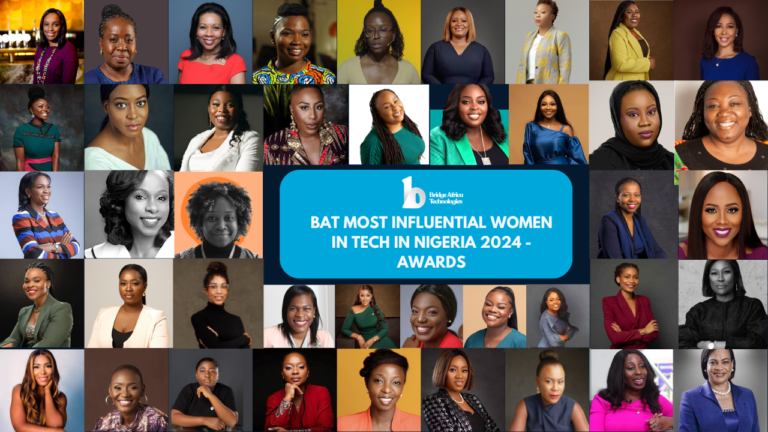
Read Also: BAT Most Influential Women In Tech In Nigeria 2024 -Awards
Personal Background
1. Can you tell us about your journey into the field of biomedical engineering and what inspired you to pursue this career?
Zainab: I’ve always been fascinated by the human body and biology was my favorite subject in secondary school. When I discovered biomedical engineering, the idea of using engineering principles to solve healthcare-related issues was both new and exciting to me. This interdisciplinary approach allowed me to explore various medical disciplines and apply engineering to study medical problems, which confirmed my decision to pursue this field. The blend of biology, engineering, and the potential to make a direct impact on patient care inspired me to follow this path. My academic experiences, such as working on cardiac fibrosis research and developing medical devices, further solidified my passion for biomedical engineering.
2. How have your experiences as a mentor and volunteer influenced your professional development?
Zainab: Mentoring international students at UAB and volunteering to teach computer skills to individuals with disabilities have greatly influenced my professional development. These experiences have enhanced my leadership and communication skills, taught me the importance of empathy and patience, and reinforced my commitment to making a positive impact on others’ lives. They have also provided me with a broader perspective on the challenges faced by different communities, motivating me to develop solutions that are inclusive and accessible. These experiences have enriched my professional journey by allowing me to give back to the community and develop skills that are essential for teamwork and collaboration in the workplace.
Professional Background
3. Could you elaborate on your role and key responsibilities at BioHorizons Implant Systems?
Zainab: At BioHorizons Implant Systems, I worked as a Research Engineer. My responsibilities included coordinating research studies with inside and outside vendors, such as clinicians and university professors. I developed and reviewed research protocols, ensuring they met all necessary compliance requirements, including those of the European Medical Device Regulations (EU MDR) and the US Food and Drug Administration (FDA). I collaborated closely with various departments on product design, development, and the implementation of new methodologies. One of my key roles was interfacing with different stakeholders to bring innovative medical devices to market, from initial concept to final product. I also managed relationships with key customers, universities, government facilities, and private practices, ensuring the success and applicability of our research projects.
4. How has your academic background prepared you for your professional career in biomedical engineering?
Zainab: My academic journey at the University of Alabama at Birmingham (UAB) provided me with a strong foundation in both biomedical engineering and biology. Earning my Bachelor and Master of Science degrees in Biomedical Engineering, along with a Bachelor of Science in Biology, equipped me with comprehensive knowledge in life sciences, anatomy, physiology, molecular and cell biology, microbiology, and biochemistry. The rigorous coursework and hands-on research experience were invaluable. My graduate thesis on the epitranscriptomic effects on cardiac fibrosis, for instance, involved advanced statistical and image analyses using software like MS Office, R, and MATLAB. This thorough academic training prepared me to tackle complex problems in my professional career, applying theoretical knowledge to practical applications in biomedical research and medical device design.
5. How do you handle the complexities and ethical considerations in biomedical research?
Zainab: Handling complexities and ethical considerations in biomedical research requires a thorough understanding of regulatory standards and ethical guidelines. I ensure compliance with these standards by seeking ethical approvals for research protocols and maintaining transparency and integrity throughout the research process. Collaborating with ethical review boards and staying informed about best practices helps navigate these challenges effectively. I also prioritize patient safety and welfare in all my research activities, making sure that the benefits of the research outweigh any potential risks. By adhering to strict ethical standards and fostering a culture of responsibility and accountability, I ensure that my research contributes positively to the field.
Skills
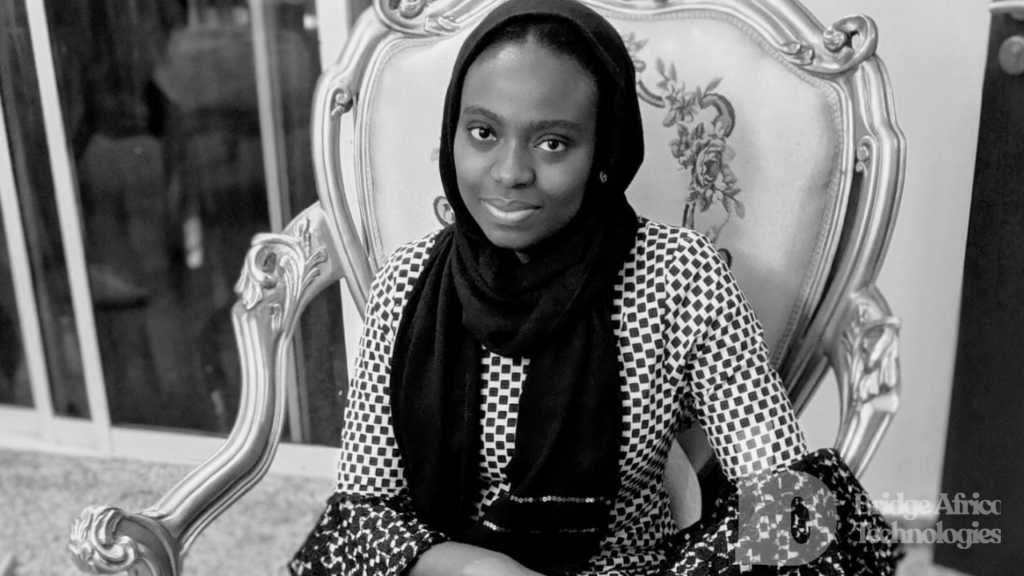
6. What are some of the key skills you have developed through your work experiences?
Zainab: Through my various roles, I have developed strong problem-solving skills, the ability to work effectively in cross-functional teams, and a knack for innovation. I have gained functional knowledge of regenerative medicine principles and life sciences, and honed various laboratory techniques. My proficiency with software such as SOLIDWORKS, MS Office, Adobe Acrobat, and MATLAB has been crucial in my research and development tasks. Additionally, my experience in coordinating research studies, managing relationships with key stakeholders, and ensuring compliance with regulatory standards has enhanced my project management and communication skills. These experiences have collectively equipped me with a diverse skill set that is essential for success in the biomedical engineering field.
7. How do you stay current with advancements in biomedical engineering and related fields?
Zainab: I stay current by regularly reading scientific journals, attending conferences, and participating in professional organizations. Engaging with the latest research and developments in biomedical engineering is crucial for continuous learning. I also participate in webinars and workshops, and I’m an active member of several professional societies. My involvement in ongoing research projects and collaboration with top professionals in the field also keeps me updated on the latest advancements. Additionally, I seek out opportunities for professional development, such as certifications and training programs, to enhance my skills and knowledge.
Achievements
8. Can you discuss a particularly challenging project you worked on and how you approached it?
Zainab: One of the most challenging projects I worked on was my senior design project at UAB, where I developed an optimized knee brace for total knee reconstruction post-surgery physical rehabilitation. This project required me to start from concept definition, move to 3D CAD modeling, and finally create a device prototype. I conducted extensive research on existing market devices, analyzing materials and design to improve cost, patient accessibility, and comfort. Translating the needs from orthopedic clinicians and patients into design input and product specifications while ensuring compliance with FDA regulations was particularly challenging. I approached this project methodically, breaking down each phase into manageable tasks, seeking regular feedback from mentors and peers, and iterating the design based on testing and feedback. The project’s success was a testament to the importance of thorough research, iterative design, and collaboration.
9. Could you share some details about your publications and the research behind them?
Zainab: I have co-authored several publications, which are a result of collaborative research on critical health issues. These include:
- “ALKBH5 Regulates SPHK1-Dependent Endothelial Cell Angiogenesis Following Ischemic Stress“ (Front Cardiovasc Med, 2022): This study focused on the role of ALKBH5 in regulating endothelial cell angiogenesis, which is crucial for understanding vascular diseases and developing new therapeutic strategies.
- “mRNA Modifications in Cardiovascular Biology and Disease: With a Focus on m6A Modification“ (Cardiovasc Res, 2021): This paper explored the impact of mRNA modifications, particularly m6A, on cardiovascular biology and disease, providing insights into the molecular mechanisms involved.
- “Two Glycoconjugates of Dopamine, IPX-750, and IPX-760, Attenuate α-Synuclein Oligomerization“ (J Nanomed Nanosci, 2018): This research investigated the potential of novel dopamine glycoconjugates to prevent α-synuclein oligomerization, a key factor in the development of Parkinson’s disease. Each publication involved extensive research, collaboration with other scientists, and rigorous data analysis, contributing to the advancement of biomedical science.
10. What has been the most rewarding aspect of your career so far?
Zainab: The most rewarding aspect of my career has been the opportunity to work on projects that have the potential to significantly improve patient care and health outcomes. Collaborating with top professionals in the field and contributing to groundbreaking research gives me immense satisfaction. Knowing that my work can lead to better treatments and technologies in healthcare is incredibly fulfilling. For example, seeing the successful implementation of a medical device I helped develop or the positive impact of a new treatment method on patients’ lives reaffirms my dedication to this field.
11. What are your future aspirations in the field of biomedical engineering?
Zainab: I aspire to leverage my extensive network of engineering and technical experts to collaborate with non-profit organizations on medical equipment repair, training, and maintenance in public hospitals. My goal is to contribute to the health and quality of life of people in my society by improving access to well-maintained medical equipment and advancing healthcare technologies. I also aim to continue my research in regenerative medicine and medical device innovation, focusing on developing new technologies that can address unmet medical needs. Ultimately, I want to be at the forefront of advancements in biomedical engineering, driving innovation and making a tangible difference in healthcare.
12. Can you describe a situation where you had to innovate to solve a problem in your work?
Zainab: During my time at BioHorizons, we faced a challenge in developing a new dental implant material. The existing materials did not meet the desired performance criteria. I collaborated with the product design and manufacturing teams to innovate a new material composition and testing methodology. This required extensive research, iterative prototyping, and rigorous testing. We explored various material properties and manufacturing processes, eventually identifying a composition that met our performance standards and regulatory requirements. The innovation led to a successful product that not only performed well but also received positive feedback from clinicians and patients. This experience underscored the importance of creativity, persistence, and teamwork in solving complex problems and driving innovation in biomedical engineering.
Conclusion
Throughout this interview, we have gained valuable insights into the remarkable journey and professional accomplishments of Zainab G. Suleiman, an exemplary biomedical engineer whose work has made significant contributions to the field. Zainab’s inspiration to pursue biomedical engineering stems from her fascination with the human body and her desire to use engineering principles to address healthcare challenges. Her educational background at the University of Alabama at Birmingham, where she earned both a Bachelor and Master of Science in Biomedical Engineering along with a Bachelor of Science in Biology, provided her with a solid foundation in life sciences and engineering.
In her role as a Research Engineer at BioHorizons Implant Systems, Zainab has demonstrated her ability to manage complex research projects, coordinate with diverse stakeholders, and ensure compliance with stringent regulatory standards. Her work has involved developing innovative medical devices, from concept to market, showcasing her problem-solving skills and dedication to improving patient care.
Zainab’s key skills include strong problem-solving abilities, proficiency with essential software tools, and effective project management and communication skills. She stays current with advancements in her field by actively participating in professional organizations, attending conferences, and engaging in continuous learning. Her contributions to research are evident in her co-authored publications, which address critical health issues such as cardiovascular diseases and Parkinson’s disease.
The most rewarding aspect of Zainab’s career has been the opportunity to make a tangible impact on patient care through her innovative work. Her future aspirations include leveraging her expertise to collaborate with non-profit organizations on medical equipment repair and training in public hospitals, and continuing her research in regenerative medicine and medical device innovation.
Recognizing her outstanding achievements and contributions to the field of biomedical engineering, Bridge Africa Technologies has honored Zainab as one of the Nigerians doing exploits in her field. This recognition not only highlights her professional excellence but also her commitment to advancing healthcare technologies and improving quality of life both in Nigeria and globally.
In conclusion, Zainab G. Suleiman is a dedicated and accomplished biomedical engineer whose work exemplifies innovation, collaboration, and a deep commitment to enhancing healthcare. Her impressive qualifications, notable achievements, and future aspirations make her a valuable asset to the field of biomedical engineering, with the potential to make significant contributions to Nigeria and the world at large.
